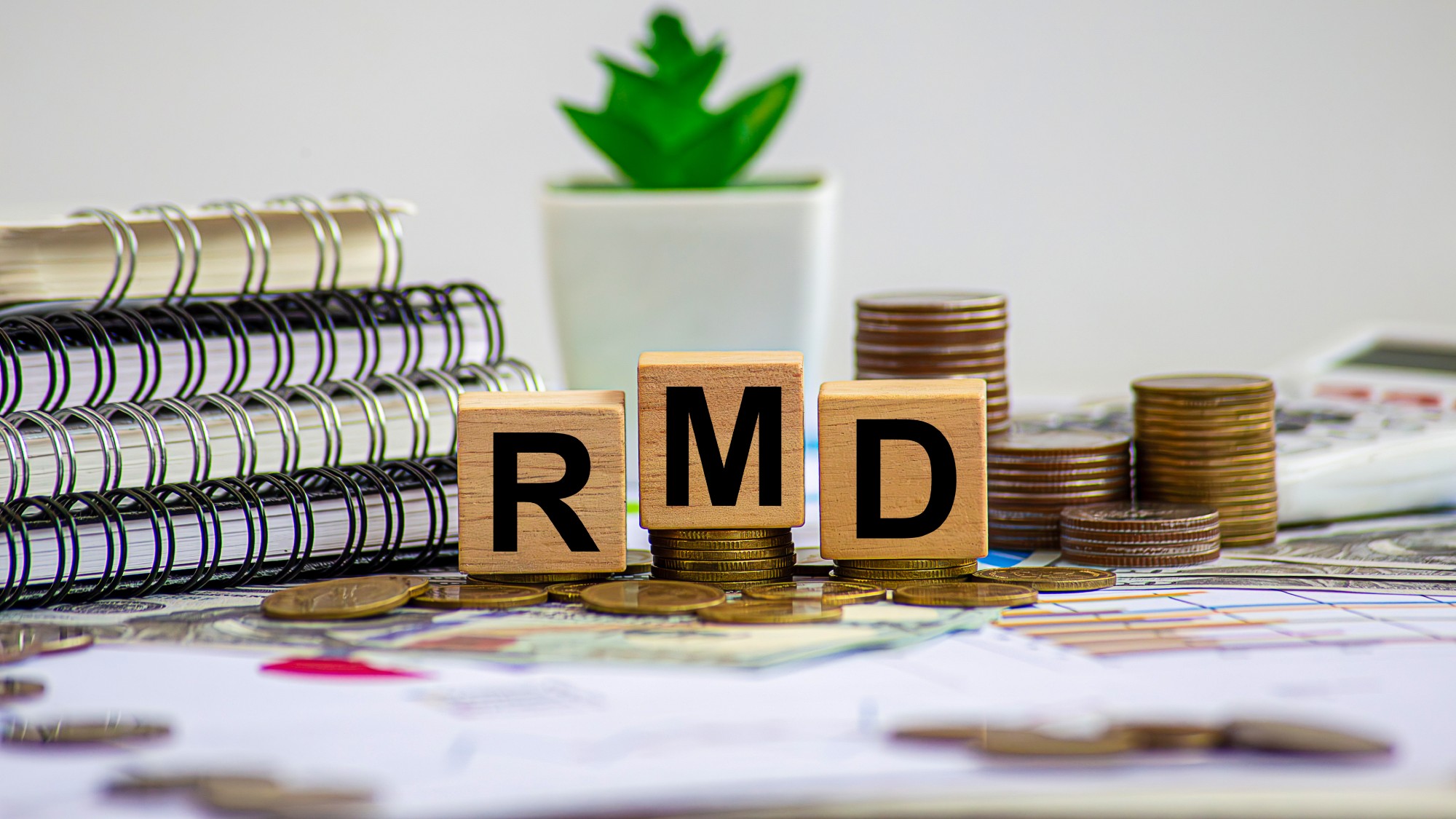The ins and outs of inheritance tax
Chancellor Jeremy Hunt tipped to announce cuts to 'Britain's most hated tax'

A free daily email with the biggest news stories of the day – and the best features from TheWeek.com
You are now subscribed
Your newsletter sign-up was successful
Pundits are predicting that reforms to inheritance tax (IHT) are in the pipeline as the government seeks to shore up support ahead of the next general election.
Expectations of changes to what has been dubbed "Britain's most hated tax" failed to materialise in last year's Autumn Statement. But with a Spring Budget scheduled for 6 March, and an election likely later in 2024, Chancellor Jeremy Hunt is tipped to announce a series of cuts to taxes including IHT, "in a bid to woo voters", said The Independent.
A No. 10 source insisted last month that such reports were "just speculation", said The Guardian. But the move would "create a point of difference with Labour", the paper added, with the rival party unlikely to support such a cut.
The Week
Escape your echo chamber. Get the facts behind the news, plus analysis from multiple perspectives.

Sign up for The Week's Free Newsletters
From our morning news briefing to a weekly Good News Newsletter, get the best of The Week delivered directly to your inbox.
From our morning news briefing to a weekly Good News Newsletter, get the best of The Week delivered directly to your inbox.
Who pays inheritance tax?
The number of inheritance tax receipts is at its highest level in 20 years, according to HMRC data.
The tax year 2020-21 saw a 17% increase year-on-year in the number of deaths resulting in an IHT charge, with 27,000 taxpaying estates. The amount raised from IHT increased by £800 million, or 16%, to £5.76 billion.
More recent figures show that HMRC received £5.2 billion in IHT receipts between April and November 2023, up by £400 million on the same period in 2022.
Polling by Ipsos Mori for The Telegraph last year found that 43% of respondents thought IHT was Britain's most unfair levy.
A free daily email with the biggest news stories of the day – and the best features from TheWeek.com
But while increasing numbers of people are facing IHT bills, polling also suggests that many people "significantly overestimate their likelihood of having to pay", said The Times. The Treasury data shows that less than 4% of estates paid IHT in 2020–21.
However, high house prices and frozen tax allowances mean "a larger and growing proportion are potentially affected by the tax", said the Institute for Fiscal Studies. The proportion of deaths resulting in IHT is predicted to grow to more than 7% by 2032–33.
IHT is charged at a "whopping" 40% on all assets above a certain threshold that are left behind when someone dies, said Zoopla. Taxable assets include "anything that has value," including homes, cars, savings and possessions. But unlike income tax, there is no sliding scale.
The politics of IHT are controversial, said MoneySavingExpert. The argument is that it "redistributes" inherited wealth via the state so it benefits everyone rather than just "children of the rich".
But critics say that since tax was already paid when the money was earned, "to pay tax on it again isn't fair", the site added.
Pundits have previously speculated that the government could increase the IHT thresholds or reduce the IHT tax rate.
Raising the inheritance tax threshold to £500,000 and removing the residence nil-rate band allowance for a main residence could cost the Treasury £1.4 billion per year and prevent around 12,500 families from paying the tax, according to wealth manager Quilter.
Inheritance tax allowances
Currently, everyone has an inheritance tax allowance of £325,000, which is known as the nil-rate band.
There is also an extra allowance if you leave your home to your children or grandchildren. This is called the residence nil-rate band, and it is currently set at £175,000.
Husbands, wives and civil partners can also pass assets to each other tax-free, regardless of the amount, so "making the most of this in your will can save your family a small fortune", Which? said.
And if a couple combine their allowances and leave their assets to their children or grandchildren, they can pass on £1 million tax-free.
There is a catch though, warned NerdWallet. The "benefits" of the residential nil-rate band are reduced on larger estates. The allowance is cut by £1 for every £2 over £2 million. So if you have an estate worth more than £2.35 million, "you will not benefit from the additional residence nil-rate band allowance".
How to reduce your inheritance tax bill
There are other legal ways to "dodge the dreaded 40% 'death tax'", said This Is Money, assuming "you are certain you are rich enough for it to become a problem for your family".
Making a will is important, said The Times Money Mentor, because otherwise the law decides, so "even more than necessary could end up going to the taxman".
Spending or giving away your money during your lifetime is another of the "simplest things you can do" to avoid paying IHT, Which? said. No tax is due on gifts, as long as the giver lives for a further seven years.
If they die within seven years and the gifts are above their tax-free allowance, the estate will pay a reduced tax rate known as taper relief depending on how long ago the gifts were handed over.
It may also be worth putting more money into a pension, because they normally fall outside of a person's estate, said Hargreaves Lansdown, "meaning there's usually no inheritance tax to pay on them".
A pension can be passed on to a beneficiary that you name when you start saving. Any withdrawals your beneficiaries make will usually be free from income tax, although this is only the case if you die before the age of 75.
Another option is to set up a trust. When you put money or property into a trust, said MoneyHelper, "you no longer own it", provided certain conditions are met. Instead, the cash, investments or property belong to the trust and are outside of anyone's estate for IHT purposes, although you can decide how and when assets are distributed.
A life insurance policy can also help cover an IHT bill, said Bestinvest, and "remove some of the uncertainty for beneficiaries", although "this needs to be written into trust so that the payout does not form part of the estate".
The life insurance route offers "peace of mind that your beneficiaries won't struggle with a huge inheritance tax bill when you die", Laith Khalaf, head of investment analysis at AJ Bell, told MoneyWeek.
But bear in mind that "you are effectively paying at least part of that bill while you are alive through your monthly premiums", Khalaf added, "which can be substantial".
Marc Shoffman is an award-winning freelance journalist, specialising in business, property and personal finance. He has a master’s degree in financial journalism from City University and has previously written for FTAdviser, ThisIsMoney, The Mail on Sunday and MoneyWeek.
Marc Shoffman is an NCTJ-qualified award-winning freelance journalist, specialising in business, property and personal finance. He has a BA in multimedia journalism from Bournemouth University and a master’s in financial journalism from City University, London. His career began at FT Business trade publication Financial Adviser, during the 2008 banking crash. In 2013, he moved to MailOnline’s personal finance section This is Money, where he covered topics ranging from mortgages and pensions to investments and even a bit of Bitcoin. Since going freelance in 2016, his work has appeared in MoneyWeek, The Times, The Mail on Sunday and on the i news site.
-
 How the FCC’s ‘equal time’ rule works
How the FCC’s ‘equal time’ rule worksIn the Spotlight The law is at the heart of the Colbert-CBS conflict
-
 What is the endgame in the DHS shutdown?
What is the endgame in the DHS shutdown?Today’s Big Question Democrats want to rein in ICE’s immigration crackdown
-
 ‘Poor time management isn’t just an inconvenience’
‘Poor time management isn’t just an inconvenience’Instant Opinion Opinion, comment and editorials of the day
-
 What to know before filing your own taxes for the first time
What to know before filing your own taxes for the first timethe explainer Tackle this financial milestone with confidence
-
 3 required minimum distribution tax mistakes to avoid
3 required minimum distribution tax mistakes to avoidThe Explainer Missteps in making withdrawals from tax-advantaged retirement accounts can cost you big
-
 Is duty-free shopping worth it?
Is duty-free shopping worth it?the explainer How to determine whether you are actually getting a good deal
-
 What the 2025 Autumn Budget could mean for your wallet
What the 2025 Autumn Budget could mean for your walletThe Explainer Chancellor Rachel Reeves will reveal her latest plan to balance the nation’s finances in November
-
 What taxes do you pay on a home sale?
What taxes do you pay on a home sale?The Explainer Some people — though not many — will need to pay capital gains taxes upon selling their home
-
 Clean energy tax credits are going away. Here's how to get them before it's too late.
Clean energy tax credits are going away. Here's how to get them before it's too late.The Explainer Trump's recently passed megabill promises the early demise of clean energy tax credits
-
 How will the new tax deductions on auto loans work?
How will the new tax deductions on auto loans work?the explainer Trump's One Big Beautiful Bill Act introduced a tax deduction on auto loan interest — but eligibility for the tax break is limited
-
 8 ways Trump's bill will change your taxes
8 ways Trump's bill will change your taxesThe Explainer The 'big beautiful bill' was recently signed into law. Here's what it might mean for your wallet.